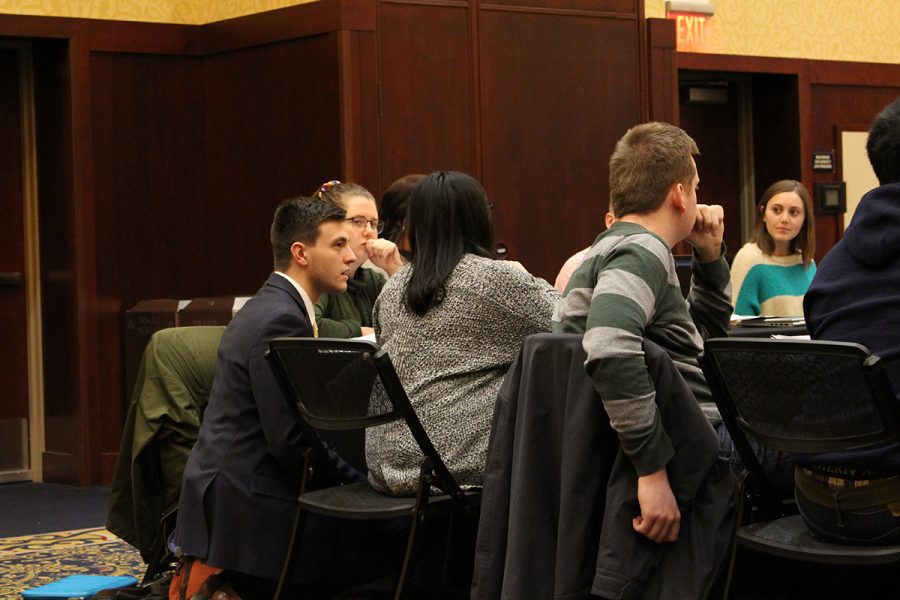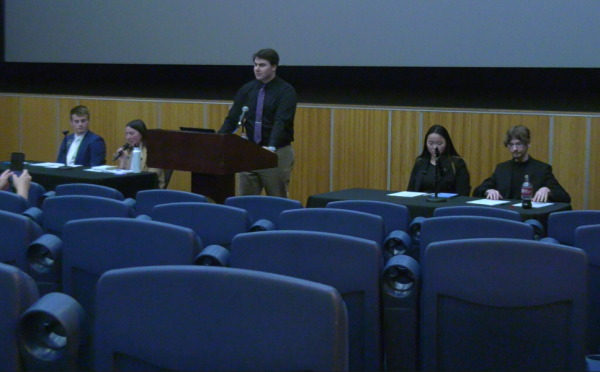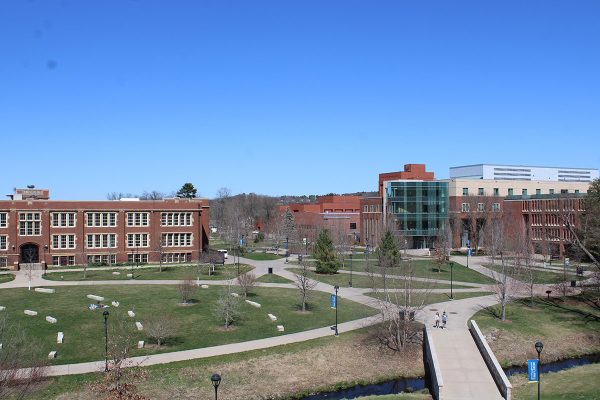Student Senate opposes tuition increase
Tuition is set to increase for nonresident undergraduate and graduate students
More stories from Rachyl Houterman
Photo by Lindsey Ambrosius
Student Senate issued a news release opposing the increased tuition rates in addition to passing Monday’s resolution.
Student Senate passed a resolution Monday opposing the recently approved tuition increases for out of state undergraduate and graduate students at three UW institutions.
Last week, the UW System Board of Regents approved tuition increases at UW-Eau Claire, UW-Stout and UW-Milwaukee.
At UW-Eau Claire, tuition for nonresident undergraduate students will increase $355, and those in the Materials Science and Engineering program will pay $391 more. Nonresident graduate tuition will increase $430. Tuition for Wisconsin residents will not increase. Similarly, reciprocity agreements are not affected.
According to the resolution, eight percent of the undergraduate UW-Eau Claire student body and 715 graduate students will be affected by the increase.
The tuition increase will help support initiatives included in the Academic Master Plan, the Equity, Diversity and Inclusivity plan and the UW System 2020 Strategic Plan.
Dier Pulatov, the finance director, said he saw other ways of generating revenue for the university that didn’t involve a tuition increase, but didn’t specify what those alternatives might be. He expressed concern over future nonresident enrollment as a result of the increase.
“There is a competition at this level at UW-Eau Claire and other institutions,” Pulatov said. “If this happens, a lot of students might choose different universities. This might affect the overall enrollment.”
Members of the Senate body also expressed frustration with the lack of communication with shared governance leaders. The approval of increased tuition came just a week after news broke that UW System President Ray Cross skirted shared governance leaders in the UW Restructuring proposal before its public announcement.
Cianna Swanson, an off-campus senator, said she doesn’t disagree with tuition increase. With the various construction and renovation projects in Eau Claire, she said she sees the tuition increase as the only way to generate revenue, especially with the resident tuition freeze still in place. What worried her more was the lack of consultation with students.
“I think there’s a huge lack of shared governance,” Swanson said. “I think that we need to press them further for information or get some kind of conference and we can make our own administrators tell us what’s going on. I would be a lot more agreeable to tuition increase if I knew why they need it so badly…”
Student Body Vice President Nick Webber voiced his worries about the value of shared governance among UW System administrative leaders as of recent.
“I think that it’s a time where–we can see this right now–where it’s coming to a point where if we don’t stand up and do something, it’s going to get further and further,” Webber said. “They’re going to continue to pit shared governance of the future. They’re going to continue pitting campus administrators against the students, and put everybody in the spot and make sure everybody else has to make the tough decisions except them. And I think that’s wrong.”
The resolution passed in a voice vote.
In addition to passing the resolution, Student Senate drafted a news release in opposition to the tuition increase.
“It is critical that affordability remains at the forefront of University of Wisconsin System decisions,” the news release said.
In other news
- Student Senate passed a resolution to formally support Black History Month.
- Austin Gulbrandson was appointed the new Intergovernmental Affairs intern.
- The Finance Commission introduced the 2018-19 Organized Activities Budget, which will be voted on next week.
- The Finance Commission also introduced a proposal for amending its bylaws, which if approved, would increase membership from 13 to 14 members. The bill will be voted on next week.










